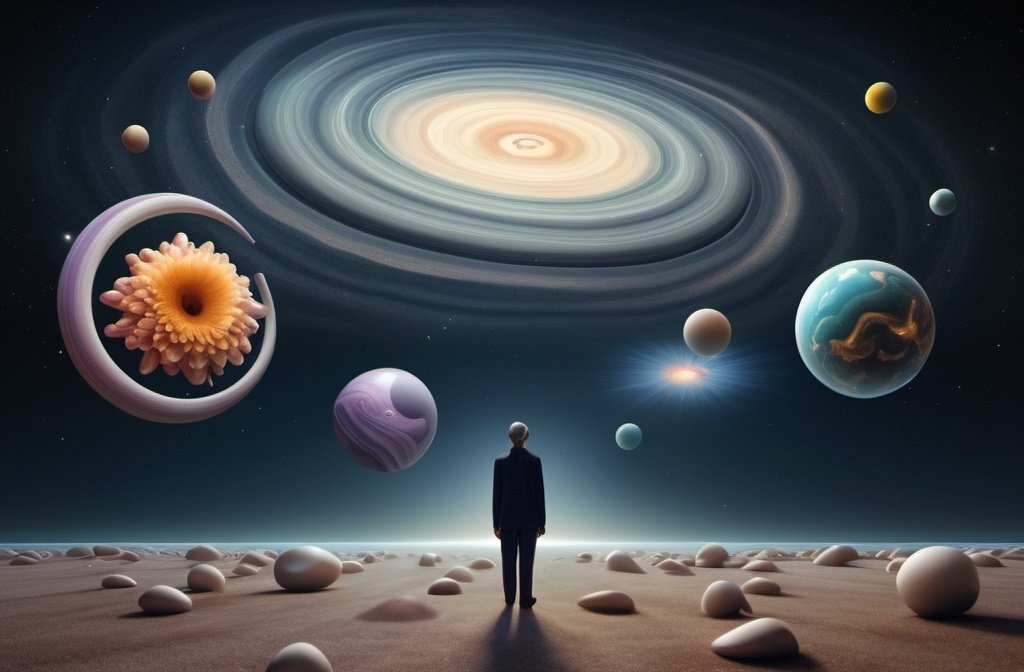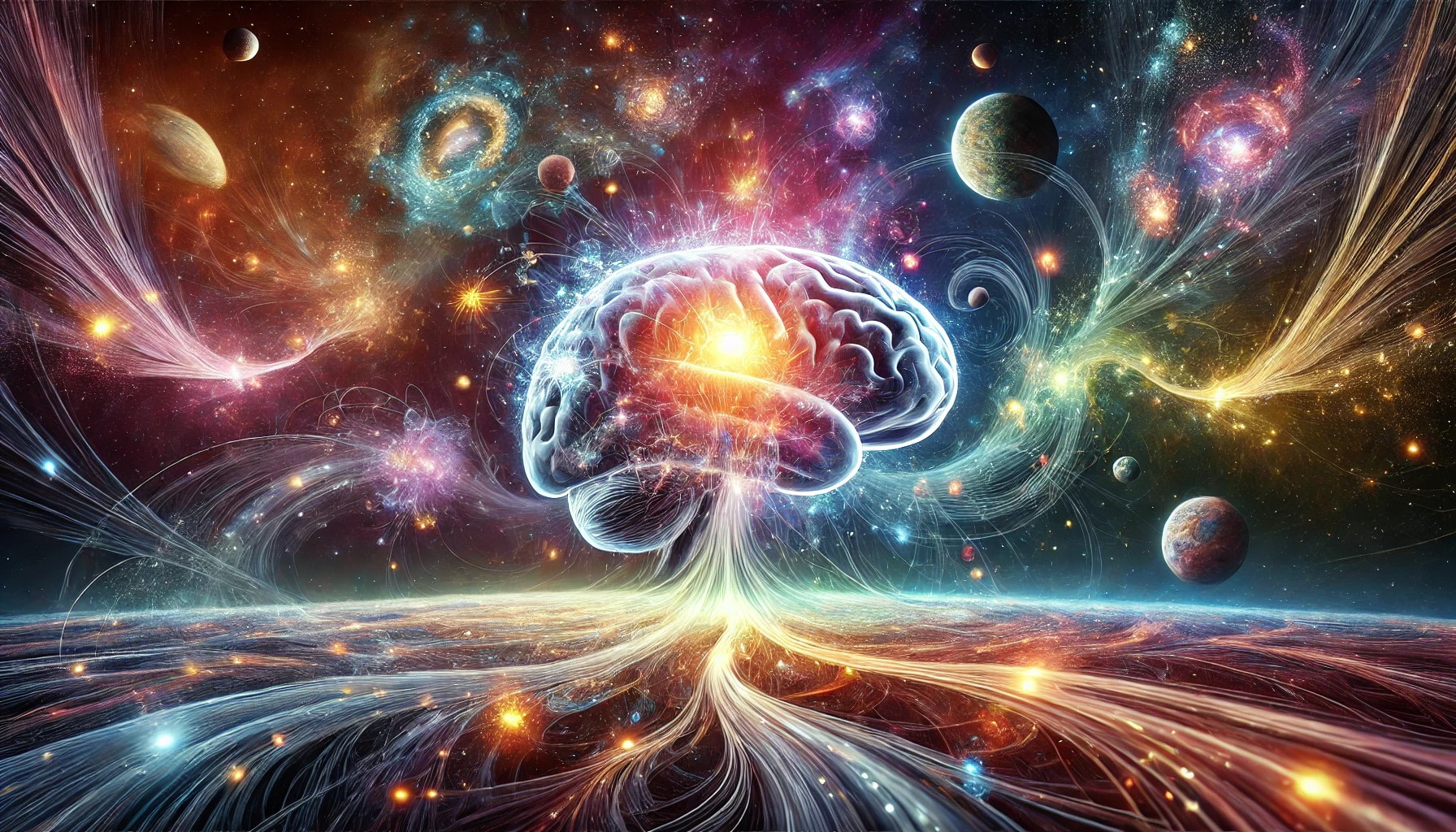Do We Have Free Will?
Published:
I love the symmetry of the same questions puzzling kids continuing to be pondered by humanity’s brightest minds. After spending two decades in the neuroscience biz, it finally feels time to sit down and write seriously about a big one that pulled me into the game to begin with (prompted by sitting in on an on-campus debate @ Davis between Sapolsky and Mitchell on the matter a few months back followed by a few weeks of devoting our lab meetings to the topic).
The question. Do you and I have Free Will?
The short answer. No. Thanks for coming to my talk! Happy New Year!
The longer answer. Well, it depends on how one defines Free Will.
Let’s start with some groundwork. First off, do you think total randomness counts as Free Will? If you do, then aye, Free Will could potentially exist. Though you and the people around you might be in some trouble or, at the very least, a pretty wild ride. Also see postscript #1.
Case example. If I hooked you up to a machine that controlled your every movement using coin flips , and it so happens to make you punch your cat in the face, I’m guessing few would say that punch constitutes an expression of Free Will.

So randomness doesn’t count as Free Will. (see postscript #2 if a pedantic thought on the randomness of coin flips came to mind)
A related extreme. I dose you with a cat-face-punching drug that forces your body to punch every cat you see. Again, I’m guessing few would say those punches were a result of your Free Will.
So complete determinism doesn’t count as Free Will either.
So what’s left? “The ability to make choices!” one might say. Excellent! Now what are those choices based on? Not randomness, we’ve already established that doesn’t count. Not from preexisting factors out of one’s control (drugs, genetics, brain wiring etc.) either since predetermined factors don’t count either. Hmmm. Dang, we’re running out of stuff here…
A mix of both perhaps! Prior experiences interacting with the randomness of the Universe! Beautifully framed and likely accurate too. Hang on a second though. We have no control over the randomness of the Universe (even if you think you do, that just moves the goalposts down to turtle town; i.e., what drives your decisions to control the Universe in specific ways). Also, at the moment of decision we, by definition, have no control over our prior experiences. Again, no room for anything else. Also note that when we behave in line with our beliefs (which are clearly formed from prior experiences) despite environmental pressures to act otherwise, most folks would call that the ultimate expression of Free Will. So, if anything, Free Will is exemplified by non-randomness as opposed to the contrary.

And that’s the crux of things. Our choices and decisions are the product of randomness from the Universe (though a LOT less than one might think, though going into that would call for an extended lecture and a lot more coffee) and (primarily) our prior experiences and biology. Huge emphasis on the word prior. We’re not just talking about the information streaming into your brain right there and then and all which neurons happen to be firing at that point in time or even (potentially) every moment of your life on earth but also (potentially, however minisculely) every moment of every ancestor you’ve ever had from your mum’s life to the first single-celled organism that came into being. Throw in the fact that the Universe’s randomness had the potential to influence a ton of those moments, minutely for sure but over the age of a universe, things add up.
So Prior with a capital P.
Fundamentally, the standard definition of Free Will calls for a causeless cause which is, of course, oxymoronic. We want something that it driven neither by randomness nor determined by prior factors. Give it a go and see if you can think of something that fits that description. Even postulating a soul doesn’t solve the issue since that just moves down a layer of turtles (i.e., what drives the behavior of the soul).
The implications of this all run deep.The idea of none of us having some magical non-deterministic control over our actions and lives has profound implications for both the big things like the legal system and social welfare but also the littler things like handling the consequences of our past “decisions” and the actions of others that have shaped our lives. E.g., Does grit and determination exist? Aye, but if one’s brain isn’t wired to be that way after the experiences its received, then you’re not going to have it (or wired to be that way upon receiving the idea that it has no control over whether it is wired that way, or better yet, wired to be that way upon developing the idea of deciding to be wired that way upon receiving the information that it has no control whether it’s wired that way etc… #turtlesallthewaydown).

Does this mean everything is fated and destined to be? Fascinatingly enough, no. Remember randomness in the Universe plays a role in determining the final outcomes. This is true randomness in the sense that it is truly non-deterministic. So if we rolled back time, things could indeed unfold differently as the clock spins forward. Critically though, the factors that drive these differences are truly random and have nothing to do with us and our brains. As an added layer of beauty, even if things weren’t this way and the universe was completely deterministic, it would still not be predictable given the nature of the factors involved (e.g., emergence). I find it essential to not fall into the trap of equating determinism with simplicity, particularly when it comes to the brain. The complexity of just a single square centimeter of our brains almost defies belief and we are nowhere close to cracking the neural code and understanding how it all works.
I’ve intentionally avoided writing about specific studies here as a full discussion of that body of work calls for a dozen different, highly specialized write-ups. Instead I’ve focused on reasoning from first principles which I find to be beautifully robust here. It would however be remiss of me to not at least mention that we have empirical results from hundreds of neuroscientific studies lending weight to all these conclusions (and effectively zero studies supporting non-determinism in the brain).
If you’ve read this far, I wish both of our deterministic brains a rich, happy and fulfilling life. As the Bard once wrote. All the world’s a stage, and all the men and women merely players… though in this case, players getting their scripts right before they say their lines, with the writer being the history of the Universe and the dynamic chaos underlying the present Cosmos.

And that, to me, is truly beautiful.
Postscript #1 : Though then you have the problem of showing that cosmic randomness can drive neural activity which based on our current state of knowledge, doesn’t really happen in practice.
Postscript #2 : Aye, the results of coin flips are technically almost certainly completely deterministic so just replace that with a quantum state inference system if that example bothered you.
